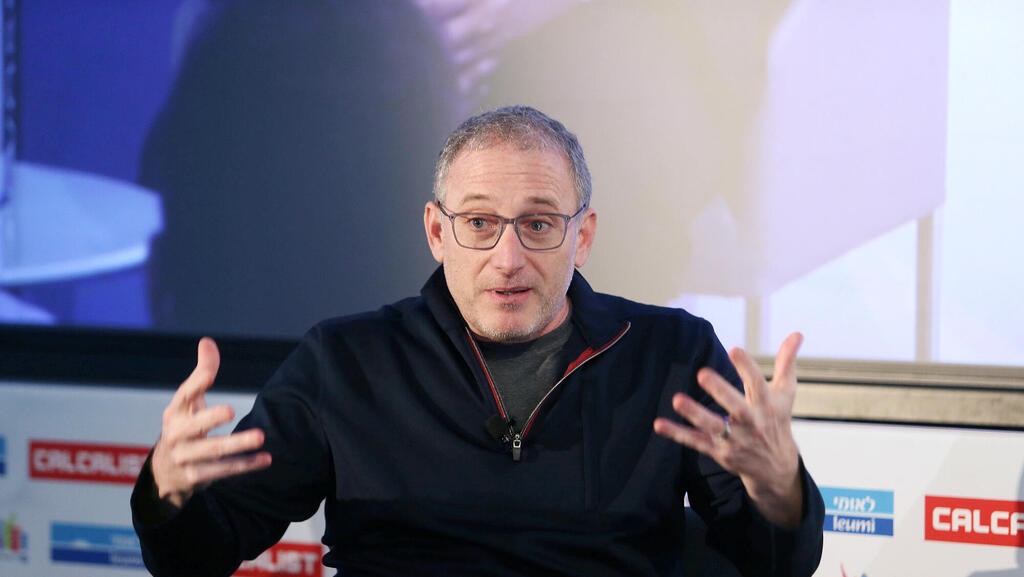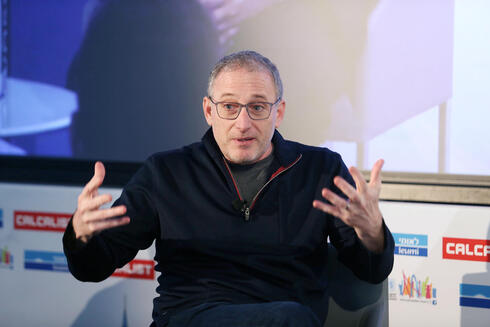
"Employees have become mercenaries rather than devoted teammates"
Noam Bardin, former CEO of Waze and VP at Google, spoke about the characteristics of Israeli high-tech and detailed the reasons for the crisis in the field
"Excess money has created the crises we are in today," stated Noam Bardin, who was CEO of Waze, as well as a VP at Google, in a conversation with Elihay Vidal as part of the The Hi-Tech Effect series by Calcalist and Mobileye. The interview dealt with the effects of Israeli high-tech on society, the economy and the environment.
"Because the interest rate was low and a lot of money was pouring in, funds raised billions of dollars on a scale that was unprecedented," Bardin said. "They had to invest it quickly in many companies, and then they ran out of companies. A situation arose where they invested too much in companies, some of which should not have even been established. It created a valuation bubble, with growth becoming more important than profitability."
According to Bardin, who was one of the leaders in the sale of Waze to Google back in 2013 for $1.1 billion, the behavioral change that took place in Israeli high-tech was more radical than in the rest of the world. "Employees in Israel became mercenaries rather than devoted teammates. They jumped from company to company, and there are quite a few stories about people who signed to work for one company and on their first day said they were already moving to another company - because they were offered more money."
“Therefore”, Bardin continues, "we are moving into a very interesting period, because on the one hand it seems like there is no money, but on the other hand there is a lot of money in funds and there are simply no companies worth investing in. There is no problem raising money - the challenge is to find the companies that have a real business model, and not inflate the money and roll it over as has happened in recent years."
Bardin also said: "The advantage of a crisis is that the strong rise to the top and the weak disappear. The last few years were an illogical period in terms of the amount of money that went into companies, and really this phenomenon shook the perception a bit. This is also what many companies that are trading at 10% of their previous value are now discovering - and that's fine. Anyone who grew up after the 2008 crisis as an entrepreneur saw the world only growing all the time. Their perception, until today, was that shares go up and the amount of money goes up and the market value increases all the time. Now, everything is changing and that's natural - and we'll get through it."
To the question of whether Waze's managers understood the impact of the sale of the company on Israeli high-tech, Bardin said: "I think that the day after the sale we began to understand the scale of the transaction, which is still considered iconic. It put Israeli high-tech in a different place, in a place where we know how to produce products. Until then everyone believed Israel only knew how to produce technology, whereas today, we can compete head-to-head with American, European, and Chinese companies, which are the pinnacle of high-tech, also in terms of consumer products. To this day, foreign businessmen who come to Israel talk about Waze's deal as some kind of opening of a window to the country".
Related articles:
Bardin was also asked how the knowledge and experience gained by senior managers in high-tech can be leveraged for the benefit of the future of the State of Israel. "We have crazy capabilities in the business world," he replied, "but also tremendous weaknesses in the public world. Our public sector is closer to a third world country, while the business sector looks like Silicon Valley. The best people go to high-tech and not to the public sector, which is a shame. We need to examine how people from other fields can be brought into positions of influence in the public sector. Very few countries in the world have succeeded in doing this."
